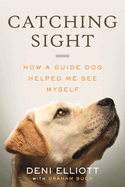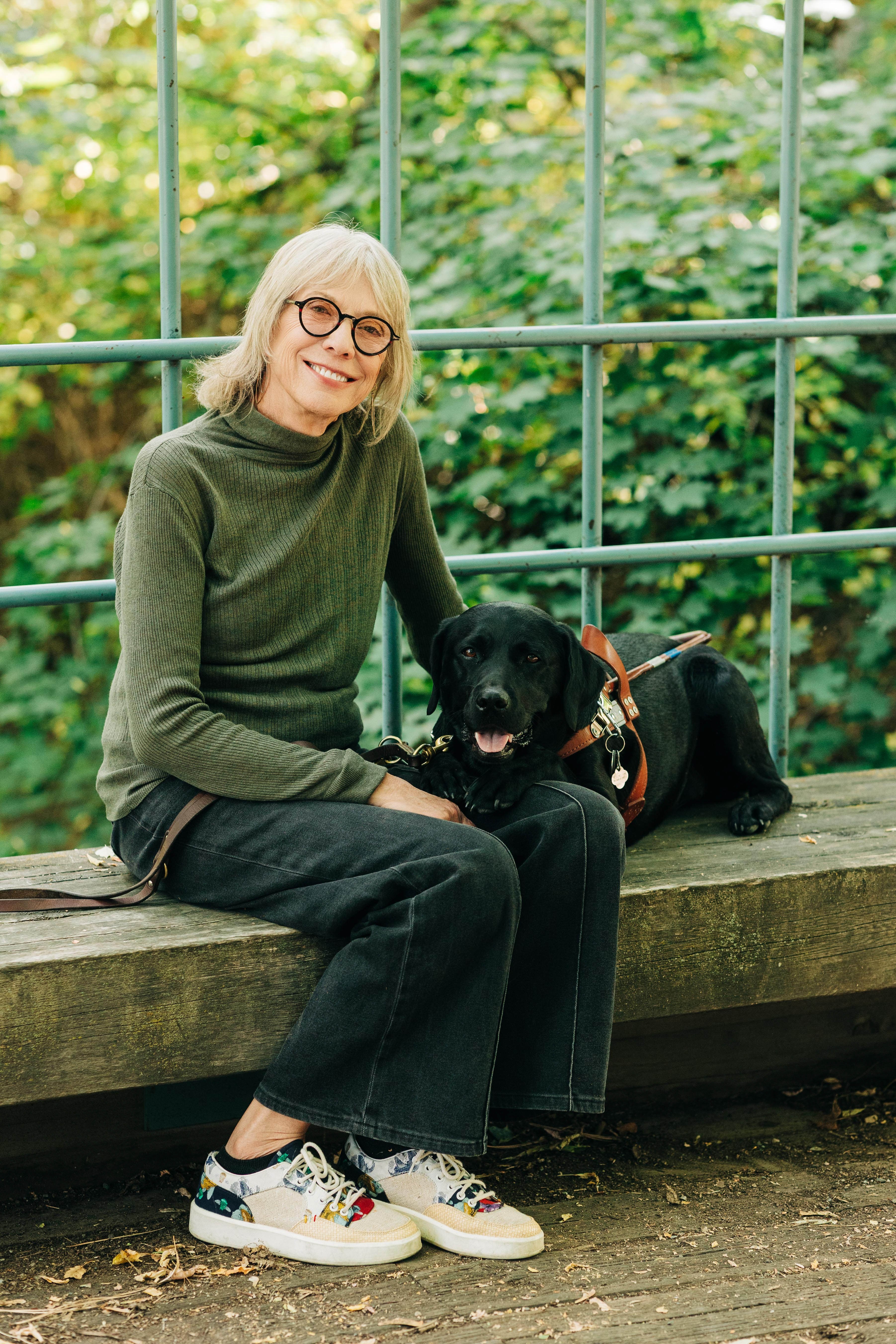Catching Sight: How a Guide Dog Helped Me See Myself
by Deni Elliott with Graham Buck
When she was diagnosed as legally blind, Deni Elliott was a philosophy professor at the University of Montana, and director of the campus-wide ethics center. Suddenly, she faced an ethical quandary of her own: She'd gotten by as fully sighted, working hard since childhood to conceal her low vison, yet now felt obligated to disclose her disability. As she adjusted to a new life of social workers and adaptive equipment, she wondered if her lifelong love of dogs could be a boon. Indeed, service dogs would become her salvation--but there was to be a steep learning curve before she was matched with the right animal. In her detailed, engrossing memoir, Catching Sight, Elliott explores her special relationships with five very different dogs and explores the process of training guide dogs for this vital duty.
Elliott was born a month premature in 1953 and the highly concentrated oxygen in the incubator damaged her vision. Her parents and older sister, Debbie, always encouraged her to be independent and develop workarounds such that she was mostly able to pass as a sighted person. For instance, her mother and sister taught her to visualize the alphabet via blocks with embossed letters, while her father showed her how to identify coins by their feel in the hand. She also had the comfort of her giant childhood dog, Marty the Newfoundland, who was truly one of the family. They were so close that, when Marty passed, a tearful Elliott told a concerned nun at her school that her big brother had died.
As a successful academic, Elliott was adept at interpreting text on screens, had a graduate student on hand to help with Excel spreadsheets, and could navigate the campus and even her driving route to work so long as she kept to careful routines and took clues from light, color, and shapes within her usual three-foot field of view. "I considered my ability to function with my limited vision as well as those with clear sight a point of personal pride and amusement," she writes.
All this changed with the diagnosis of blindness. It was both a psychological and a practical adjustment: Elliott felt patronized by the state social worker who came to assess her setup (and offered technology incompatible with her Mac computer). She'd been functioning perfectly well, she thought, and resented that now there would be physical signs of her partial sightedness for others to judge her by.
Soon, she was eager to trade her white cane for a guide dog--and had a novel idea of how to do it. Oriel, her devoted golden retriever puppy, moved into the role of assistance dog after just three months of informal training. Oriel accompanied Elliott to campus and, for work purposes, on regular plane commutes to California and Florida. However, her bad habit of stealing food couldn't be broken, and she got burned out by two years of intensive travel. In the end, Oriel retired to a homeless shelter to serve as a therapy dog.
A new strategy was needed. Elliott's first proper guide dog was Wylie the German shepherd, but his temperament wasn't suitable. Energetic and aggressive, he never lost the prey drive for chasing. When he killed a cat, it spelled the official end of his service. Elliott faced further upheaval during these years: her husband, Paul, who was also an academic with long-distance commutes, had an affair and their marriage ended in divorce.
If there's a hero in this book, it's the character who enters next: Alberta the yellow Labrador, "whose quiet and subtle brilliance will capture your heart," as Beacon Press's associate editorial director, Joanna Green, predicts. Alberta went through Graham Buck's accelerated training program for Guiding Eyes for the Blind. Essentially, dogs are chosen before birth, through genetics research and breeding indexes. They live with foster families and undergo a rigorous two-year regime to prepare them for negotiating traffic and dealing with obstacles. When Elliott joined Alberta on Buck's course, she was impressed that the dogs adapted to a rigid feeding and toileting schedule. Alberta's nonverbal communication was astonishing. One day she stopped still on the sidewalk. Elliott had no idea why, then noticed a snake slithering off ahead of them. This was a dog she could trust with her life.
Animal lovers will recognize the joys and heartaches of interdependency. Alberta had real drive and love for her guiding work. Ironically, though, she developed vision problems--a uveal melanoma that required removal of the right eye--that forced her into early retirement. "That dog was one of a kind," Elliott concludes. Alberta leaving her was a blow, but Elliott was then matched with Koala, a female black Labrador who keeps teaching her owner things, and surprising her with her intelligence and initiative.
Catching Sight will reward the curious reader with fascinating accounts of dog training and the adaptations involved in coping with disability. But best of all, it's a heartwarming story of human-animal connection and resilience. --Rebecca Foster



